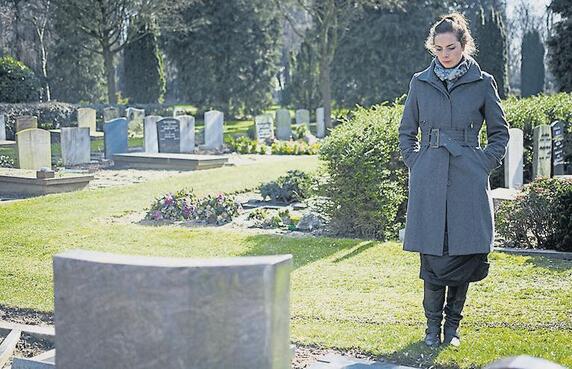Grieving at a distance
As a country – and a church – we’ve faced many hard things in recent months: health worries, job insecurity, financial instability and physical distancing from those we love.

Many churches have found creative ways to carry on providing services, small groups and pastoral care. Technology is being harnessed like never before and we have been seeking ways to stay connected as best we can. But some things remain tough. Maybe one of the toughest is helping people grieve.
This time last year, the loss of a congregation member would have been experienced as a profoundly communal affair. No doubt the death would have been announced in a service and people would have embraced each other with tears. After the service, there would have been friends praying words of comfort into each other’s lives. Pastors would have done home visits. Multiple members of the congregation would have played a part in the funeral service: setting up, stewarding, providing music, refreshments, and more. And church leaders would have led congregations through services of thanksgiving – opportunities to remember, celebrate and cry. That is as it should be.
Grief is designed to be a communal experience – we see that in the death of Lazarus or the psalms of communal lament. But now almost all that has gone. Committals are for healthy, close family members only (and then spaced apart). Brothers and sisters in Christ have no corporate forum in which to pour out their tears. There are good reasons for these restrictions, but there is a cost to losing opportunities to grieve as one. Not having chances to say ‘goodbye’ can make the grieving process slower, harder and increase the likelihood of things like depression taking hold.
So, what, as churches, can we do to help people mourn well? Here are five areas every church can consider addressing, even when we can’t physically meet.
1. Communicate
Pre-recorded services make notices hard, impersonal emails aren’t always read, it’s so easy for the death of a church member not to be communicated well. But family need to know. Asking a team of people (maybe small-group leaders) to inform members (using a pre-prepared form of words) will ensure people hear the news accurately and hear it with phrases that provide Christ-centred care.
2. Comfort
Providing central resources for mourning which all can use may bring great comfort. Prayers, a playlist of hope-saturated songs, a sheet on how to use the Psalms in times of lament and key Bible verses on which to dwell can fuel healthy, biblical mourning for all.
3. Celebrate
Thanking God together for someone’s life is a bonding and beautiful thing. An online page where people can share photos and memories (and a phone number where the less tech-savvy can leave their words too); an opportunity to give financially to a charity or specific church project which the deceased held dear, or simply an online meeting where people can share their favourite stories from a person’s life and pray prayers of thanksgiving, can bring immeasurable relief.
4. Care
Dropping round meals to those most affected is less easy than it was, but it’s still possible, ideally using disposable trays (so the bereaved don’t need to journey to return them) and freezable recipes (because the grieving don’t always want to eat a generously provided meal that day). Phone calls to talk through choices – coffin, music to be played, flowers, etc. – may still be appreciated. And, for all those grieving, praying on the phone can mean the world.
5. Connect
More than anything, though, churches need to hold out words of life from the Bible that enable people to fix their eyes on Jesus and commit to following Him throughout the process of grief. Whether that’s a one-off sermon that can be accessed any time, an opportunity to reflect and pray over the phone with someone skilled at guiding people through loss, or a series of Bible studies that small groups can work through online, we can be diligent in helping people persevere until:
He will wipe every tear from their eyes. There will be no more death or mourning or crying or pain, for the old order of things has passed away (Rev. 21:4).
More about Biblical Counselling UK is available at www.biblicalcounselling.org.uk or you can contact them at info@biblicalcounselling.org.uk or c/o Christ Church, Christchurch Street, Cambridge CB1 1HT



